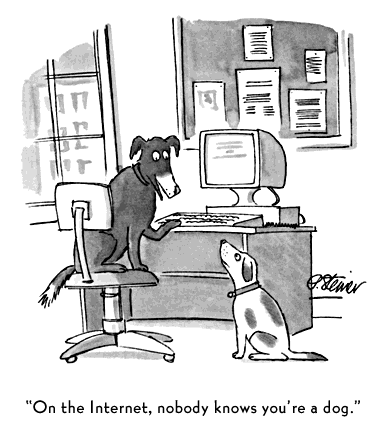You know you're living in the middle of a social revolution when all of the following things happen:
- A 15-year-old Morgan Stanley intern is asked to write up a memo describing his friends' social media habits;
- Experts at Morgan Stanley are so impressed that they publish the memo--on the front page of the Financial Times;
- Executives worldwide are so impressed that they run to their...telephones to contact said intern or said financial firm or to access the full report; and, perhaps most importantly,
- Media outlets are so impressed that the story spreads like a virus, complete with terms like "proclamations," "pronouncements," and "declarations."
 The story of Matthew Robson is, depending on your general stance toward social media, young people, and media moguls, some combination of comic and / or terrifying and / or compelling and / or sad and / or absurd. Meanwhile, freaked-out CEOs worldwide are asking: "Is Robson right that teens don't use Twitter?"
The story of Matthew Robson is, depending on your general stance toward social media, young people, and media moguls, some combination of comic and / or terrifying and / or compelling and / or sad and / or absurd. Meanwhile, freaked-out CEOs worldwide are asking: "Is Robson right that teens don't use Twitter?"That, my friends, is the wrong question. The right question is this: Why did this teen's memo, short on evidence but long on declarative sentences, get so much play among mainstream media outlets? In other words: Why is one 15-year-old's middling analysis of teen media use being interpreted as the new bible of social media?
The answer is simple: We're lost in a forest and we're looking for a guide to lead us out. We live in a world where knowledge is abundant and access is near-ubiquitous. What's scarce is the ability to sift through the information, to extract, synthesize, and circulate key ideas to a public that's starving for someone to serve as an intelligent filter.
The knowledge-abundance model is a first for humankind, and we're struggling to come to terms with what this shift means for every institution we've erected, from economics to education to religion to work. Older adults especially, and especially those who feel overrun and overburdened with media messages, are alert for anybody who appears to speak this new "knowledge-abundance" language with anything approaching fluency. Young people, more adaptive in general and more capable of living with ease in a high-stimulus media environment, make social media seem so easy that people who should really know better will sit still and soak up every word.
Robson's memo, all questions of accuracy and expertise aside, displays a remarkable air of confidence and credibility. Look at this sample passage, about teens' willingness to read print media:
The only newspapers that are read are tabloids and freesheets (Metro, London Lite…) mainly because of cost; teenagers are very reluctant to pay for a newspaper (hence the popularity of freesheets such as the Metro). Over the last few weeks, the Sun has decreased in cost to 20p, so I have seen more and more copies read by teenagers. Another reason why mainly tabloids are read is that their compact size allows them to be read easily, on a bus or train. This is especially true for The Metro, as it is distributed on buses and trains.
So: in a revolutionary shift, nearly everyone has nearly the same access to the bulk of human knowledge. Knowledge, ostensibly the great equalizer, doesn't in practice equalize a thing because there's simply too much information out there for any one person to make sense of it. We're surrounded by so many unfamiliar trees that we can't begin to figure out which of them might bear fruit. It's why we rely on blogs and Twitter to distill our news and point us, quickly, to a few key stories; it's why we keep track of a vast network of friends and acquaintances through social networks like Facebook and MySpace; and it's why a 15-year-old intern's memo is taken at face value because it offers a simple roadmap for navigating social media use among teens.
When you're lost in a forest, it appears, you'll follow anybody who promises to lead you to a clearing. The next question is: How long until we realize that the guide may be walking quickly as if he's following a path but is in fact just as lost as everyone else?






1 comment:
I don't agree at all that the "knowledge-abundance model" (which phrase I LOVE, btw) is "a first for mankind". Quite the contrary ... it's exactly the problem our minds are evolved to handle, and we handle it in various ways, including creating systems like Twitter. Or bulleted lists. Or headlines. Or the alphabet. Or simple sign language. Humans naturally get more information than they need and communicate the main points.
The problem is more correctly defined in this section : "What's scarce is the ability to sift through the information, to extract, synthesize, and circulate key ideas to a public that's starving for someone to serve as an intelligent filter." I would add that this is the problem demonstrated by MS upper management. Any training in statistics (or logic, or critical thinking) at ALL would have given them the heads up that one 15 year old intern (oh. and his buddies) was probably not a valid statistical universe. The problem is that one can arrive in a position of influence and authority without abandoning magical thinking as a valid meta-filter.
As Professor Kirk said, "What DO they teach them in these schools?"
Post a Comment